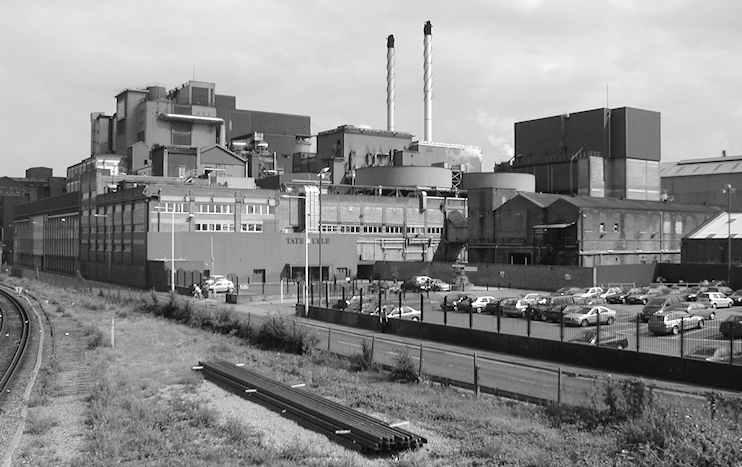Silvertown
Silvertown, Newham
A slowly regenerating dockland district situated between the Thames and Royal Victoria Dock

Industry and accompanying housing grew up on the marshes here after the cutting of the railway to North Woolwich in 1847, prompting the opening of Silvertown’s own station in 1863. The town takes its name from one of the first manufacturers, SW Silver’s rubber works.
In 1877 Henry Tate set up his sugar cube factory in Silvertown and four years later Abram Lyle began to produce Golden Syrup at nearby Plaistow Wharf. Treacle refineries and jam makers also established themselves here, giving rise to the nickname ‘the sugar mile’ for the industrialised highway consisting of Silvertown Way, North Woolwich Road and Factory Road.
In 1889 a strike at Silver’s factory paralysed Silvertown for three months and influenced the evolution of trade unionism in London. John Tully’s book on the subject is subtitled “The lost story of a strike that shook London and helped launch the modern labour movement.”
London’s largest ever explosion occurred in 1917 at the Brunner Mond munitions factory. Seventy-three people were killed and much of the town was destroyed, only to be rebuilt after the war along the same lines as before.
During the Second World War Silvertown was a prime target for German bombing. On one occasion a ring of fire forced the Woolwich ferries to mount a Dunkirk-style evacuation of the inhabitants. The effect of wartime bombing in Silvertown is shown in Graham Sutherland’s painting Devastation, 1941: An East End Street (1941, Tate Collection).
Silvertown station closed in 2006, though stations on the DLR extension to Woolwich have ensured that the district remains well served by rail. Recent residential developments have primarily focused on West Silvertown. The regeneration of the dockside area known as Silvertown Quays – north of Pontoon Dock station – may begin relatively soon, after several previously proposed schemes had failed to get off the drawing board.
Mark Knopfler’s song Silvertown Blues contrasts scenes of desolation in turn-of-the-millennium Silvertown with the economic boom taking place elsewhere in Docklands: on the Greenwich peninsula, in Blackwall and at London City Airport.
